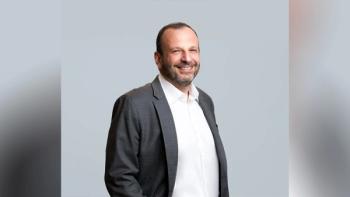
A Fireside Chat: Dr. Steven Miller, Express Scripts
Highlights from Peter Young's conversation with Dr. Steven Miller, Chief Medical Officer and SVP of Express Scripts, on Miller's business philosophy and the current issues facing the sector.
Pharm Exec, with co-sponsor support from our Editorial Advisory Board member Peter Young, held its 12th Annual Pharmaceutical Executive Summit on “Emerging Strategic, Financial and Shareholder Issues” on November 1. Dr. Steven Miller, Chief Medical Officer and SVP of Express Scripts, one of the leading Prescription Benefit Management companies, was keynote speaker. Afterwards, Dr. Miller sat down with Peter Young to talk about his career in the industry, current issues facing the sector, and some of his business philosophies.
The following are some highlights from the conversation.
Peter Young (PY): You have an unusual career history in that you have been a doctor, a clinical researcher, a hospital administrator, and now a senior executive in a corporation in prescription benefit management. How has this mix of experiences influenced and/or helped you along the way and in the job you are doing today?
Steven Miller (SM): My initial goal was to be a veterinarian, but I ended up going into a six year medical school program. I became a physician and focused on taking care of patients. I then moved into doing research fellowships and clinical research for a number of years, issued lots of patents, and was involved in doing drug trials. I then became the Chief Medical Officer for Washington University, which was a position that had never existed before and got on the business side. To learn business skills, I went to business school for my MBA and became Vice President of the Medical Center. By 2006 I ended up at Express Scripts. So the pattern has been to go from being a respected physician to positions that were increasingly “evil”, but I had the great fortune to be exposed to a number of different disciplines. I think having that mix of experiences has been helpful because there are so many dimensions to the industry that you have to understand.
PY: Any key turning points in your early years that you can share with us?
SM: My parents got me on track after I flunked third grade by making me find a job at a ski shop, which was very hard work. This was a great experience for me. That experience helped me develop a strong work ethic, self-esteem and an appreciation for the rewards one can get from hard work.
PY: You have been involved in a project called the Bluefield Project that took a unique approach to R&D. Can you tell the audience something about that project and what it has been able to accomplish?
SM: The Bluefield Project emanated out of the University of California San Francisco where the target was to use a finite sum of money to focus on cures for Alzheimer’s disease where there is collaboration across a large number of institutions. The researchers have to share data on a weekly basis so that the cycle of discovery is very fast. This sharing across a large number of researchers has had a very positive effect and the IP issues are well defined and solved. We are making great progress and we have broken down the typical silos and reluctance to share.
PY: As you reflect on how Big Pharma, Specialty Pharma and Biotech companies conduct R&D, what do you think is working and not working? What changes would you recommend to them with regard to how they are approaching R&D?
SM: The biotech industry in the US is spectacular with regard to R&D effectiveness. This is not true at the large pharma companies. The large companies are focused on portfolios, not individual products. The strength of the biotech approach is a tight focus on a specific product. The large pharma companies, on the other hand, have an advantage on the regulatory and marketing side. That is why they use M&A to acquire biotech companies or their products. The biotech and pharma companies have a symbiotic relationship.
Part of the problem for the large pharma companies is that they are chasing the same therapeutic areas and are not focused on finding the areas of unmet needs that are not getting attention.
PY: How do you think the pricing battle is going to play out?
SM: No crisis lasts forever. Someday pricing will not be on the front page. But how do we get there? Part of the solution is how the pharma companies behave and are perceived. For example, Brent Saunders of Allergan has promised not to raise the price of any drug more than 10% each year. It is going to take time and a lot of actions to get us to the right place.
PY: How will PBM’s have to change in the future to deal with industry and market changes?
SM: We are focused on how to become involved in a larger part of the healthcare system, not just drugs. We’re doing things that go well beyond just delivering drugs. For example, we are using our knowledge and data to become more involved in disease management by having live monitoring of patients that allow us to alert patients when we know that there is some significant blood sugar change and letting the patient know. Since we are somewhat of a virtual company, we can add these services economically as a “light rail” company.
PY: Express Scripts has put an enormous effort into data analytics and into innovation in general. Could you describe these efforts, what is driving these efforts, and what you think the benefits will be?
SM: We have predictive models for almost any disease that you can think of. For example, we can predict if someone has a high propensity to be an opioid addict after their first prescription. We have ways to provide feedback to the patient in an appropriate way that will help them avoid these predicted problems. We think we can change the world by using our data and predictive models to change behaviors in a positive way with regard to patient health.
PY: Express Scripts has embarked on creating a chain of specialty pharmacies? Why are you doing this and will this create tension with other parts of industry?
SM: We really have therapeutic resource centers in 21 therapeutic areas. These centers have specialists in each therapeutic area. These are not general pharmacists. That way people can talk to specialists. By setting it up this way, the patients speak with a specialist pharmacist for their disease. Obviously other pharmacists do not like this because we are getting 10% better patient adherence by having these specialists and we can do it on a large scale because we are almost a virtual company. We do not have lots of bricks and mortar.
Peter Young is President and Managing Director of Young & Partners, an international advisory and investment bank serving pharma andbiotech. He can be reached at
Newsletter
Lead with insight with the Pharmaceutical Executive newsletter, featuring strategic analysis, leadership trends, and market intelligence for biopharma decision-makers.




